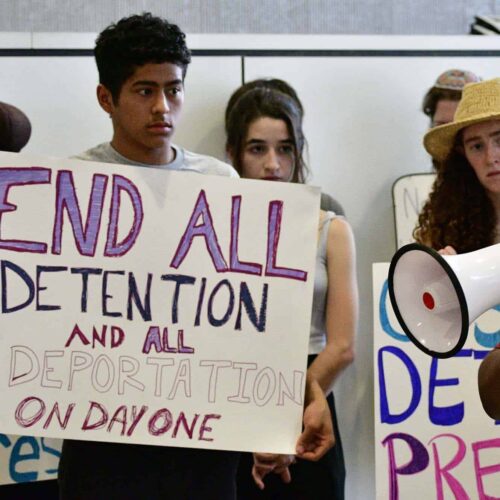Introduction
Shortly after taking office Jan. 20, President Joe Biden ordered a 100-day moratorium on most deportations. Six days later, a federal judge in Texas blocked the moratorium with a 14-day restraining order. Republican Texas Attorney General Ken Paxton sought the restraining order, arguing that Biden was endangering the state.
Paxton’s challenge is a sign that more partisan clashes lie ahead as Biden seeks the deepest reforms to the U.S. immigration system in decades.
Biden has promised an immigration “reset” from former President Donald Trump’s harsh policies. The moratorium was issued so officials could review migration policies — including deportations of undocumented people with U.S. family members and asylum seekers, some of whom have died violently upon return to their native countries.
Other executive actions ended Trump’s attempts to strip work permits from about 700,000 Dreamers — immigrants who arrived to the United States as undocumented children. Biden also ended a Trump policy forcing asylum seekers into Mexico pending asylum hearings. But Biden’s greatest challenge could be enacting fundamental reforms that Congress must approve — including a path to legal permanent residency for many of the roughly 11 million undocumented people who’ve been living and working here for decades.
Biden proposes five years of temporary status for most undocumented immigrants. After that, immigrants could apply for permanent legal residency and subsequently become eligible to apply for citizenship in three more years, if they meet several requirements. Farmworkers, the subject of several Center for Public Integrity reports, would be eligible to apply for green cards right away — a relief to many in the farm and dairy industry. Dreamers and Central Americans and others with provisional Temporary Protected Status and current work permits would also be eligible to apply for green cards immediately.
Democrats control both houses of Congress. But consensus that includes some GOP members and more than a bare majority will require negotiation.
Still, despite Trump’s influence and false negative claims about immigration, polling shows that most Americans support conditional legalization for the undocumented. The U.S. Chamber of Commerce and labor unions that represent food, service and construction workers also support legalization.
We can’t do this work without your support.
“We’re in a much better position to have impact now,” said Kali Pliego, a member of American Families United, an advocacy group for U.S. citizens and legal residents with undocumented spouses or parents.
Pliego, a Minnesota resident, said many Americans mistakenly assume that marriage to a U.S. citizen allows an undocumented person to obtain legal status.
Far from it.
There’s no longer an Ellis Island-like line to obtain a visa. And in 1996, Congress approved legislation requiring anyone who enters the country illegally and stays for more than a year to face a bar, or exile, from the United States for a minimum of 10 years. Entering the U.S. after a deportation adds more years.
Public Integrity spoke to Pliego in 2019 as she lobbied Congress. She and her Mexican husband have a 4-year-old. American Families United estimates that 2 million U.S. families face Pliego’s dilemma. Biden proposes ending the mandatory bars.
But for now, “we live in fear,” Pliego said.


Join the conversation
Show Comments